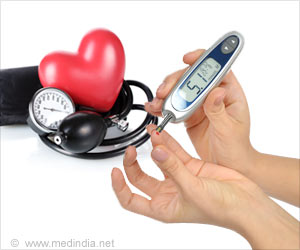
These abnormal patterns of blood pressure increase the risks of various cardiovascular complications as well in adults with type 1 or type 2 diabetes.
Death Risk & Diabetes
The study was conducted on 349 adults with diabetes in Pisa, Italy from 1999-2020. Among them, 50% were women, almost 284 had type 2 diabetes and 65 had type 1 diabetes. Deaths during the 21-year follow-up period accounted for 136 cases.
Moreover, among the participants, 82% had hypertension and 73% had uncontrolled hypertension.
It was found that more than half of the participants had non-dipping blood pressure during the night, and 20% were reverse dippers. Moreover, one-third of reverse dippers had cardiac autonomic neuropathy versus 11% of those who had no dips.
READ RELATED: Ferrero Rocher 'will launch ice cream in UK this summer'
Reduced survival to an average of 2.5 years was seen in reverse dippers and an average of 1.1 years in non-dippers when compared to dippers. In addition, reverse dippers had a more than two-fold increase in overall death risk.
“Our study shows that 1 in 10 people with type 1 or type 2 diabetes could be a reverse dipper, and that this condition likely more than doubles the risk of death from any cause over 21 years’ time, regardless of blood pressure control. It is important that health care professionals look for abnormal blood pressure dipping patterns in people with type 1 or type 2 diabetes. There are strategies to reduce blood pressure during the night. We support using this screening to optimize treatment for people with diabetes,” says Chiriacò.
Source: Medindia
Source:






